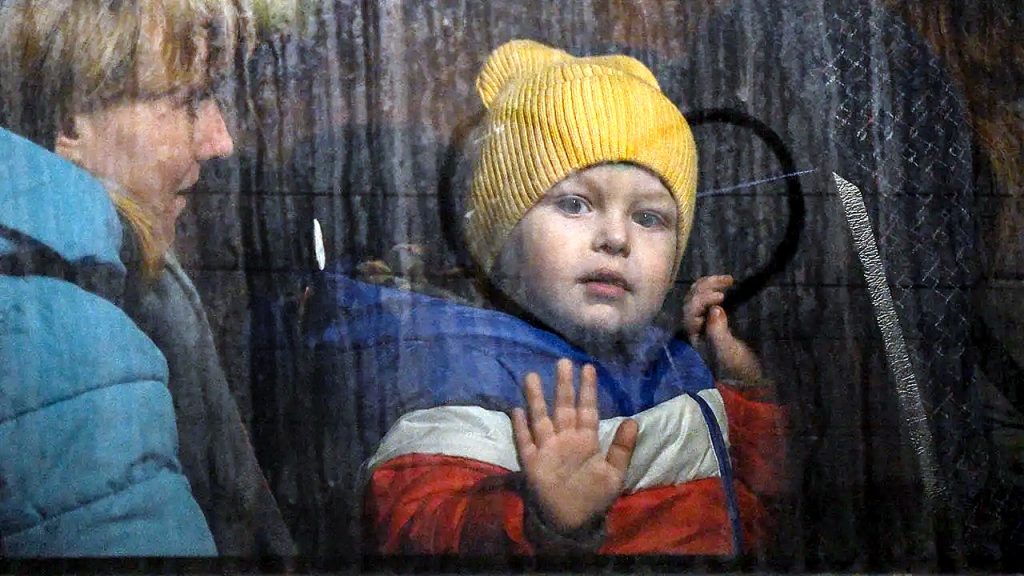The Heartbreaking Plight of Ukraine’s Abducted Children
In the shadow of Russia’s devastating invasion of Ukraine, a humanitarian crisis of profound proportions continues to unfold. More than 19,500 Ukrainian children have been confirmed victims of unlawful deportation and forced transfer to Russia, Belarus, or Russian-occupied territories since the conflict began three and a half years ago. Some reports suggest the actual number may be closer to 35,000 children, many of whom are feared to have been illegally adopted by Russian families. This systematic abduction represents one of the most heartbreaking human rights violations of the ongoing war, tearing families apart and subjecting innocent children to profound trauma and cultural erasure. Despite international outrage and diplomatic efforts, only about 1,500 children have been returned to their homeland, leaving thousands still separated from their families and their country.
The issue has recently gained renewed attention on the world stage as NATO leaders convened to discuss the war in Ukraine. President Donald Trump, following separate meetings with Russian President Vladimir Putin and Ukrainian President Volodymyr Zelenskyy, emphasized that the matter of forcibly deported Ukrainian children “is a subject at the top of all lists.” The crisis was further highlighted when First Lady Melania Trump sent a heartfelt letter to Putin, hand-delivered by President Trump during their meeting. In her appeal, she wrote that “it is time” to restore children’s “dream of love, possibility and safety from danger,” noting that each generation’s descendants “begin their lives with a purity — an innocence which stands above geography, government, and ideology.” Though the letter did not explicitly mention Ukraine, it was warmly received by Ukrainian officials as an important gesture of support.
The diplomatic dance around this issue took an unexpected turn when President Zelenskyy surprised Trump by presenting him with a letter from Ukraine’s First Lady, Olena Zelenska, intended for Melania Trump. While the contents remain undisclosed, the exchange underscores how the fate of these children has become a focal point in discussions between the warring nations and their allies. President Trump acknowledged his wife’s deep compassion regarding the children’s plight, saying, “She sees the heartbreak, the parents, the funerals that you see on television, always funerals.” This human dimension adds emotional weight to what might otherwise remain abstract diplomatic negotiations, reminding world leaders of the real human suffering behind the statistics.
Behind the scenes, Ukrainian negotiators have been working tirelessly to secure the return of these children through talks with Russian counterparts in Turkey. While some progress has been made on prisoner-of-war exchanges, the return of children has proven particularly challenging. President Zelenskyy has expressed frustration that Russian officials refuse to hand over Ukrainian children directly to Kyiv, making the process “impossible” without third-party mediation. Countries like Qatar and the Vatican have stepped in to facilitate some returns, acting as crucial neutral intermediaries in what has become an extremely sensitive aspect of the broader conflict. These mediators have proven essential in navigating the complex political landscape where children’s lives have become tragically entangled with geopolitical disputes.
The methodical abduction of Ukrainian children represents more than just a wartime tactic; international legal experts consider it a potential crime against humanity and evidence of genocidal intent. By transferring these children to Russian territories and placing them with Russian families, authorities appear to be attempting to erase their Ukrainian identity and assimilate them into Russian society. Many of the children are reportedly subjected to “re-education” programs designed to instill Russian patriotism and eradicate their Ukrainian cultural connections. This systematic approach has alarmed human rights organizations worldwide, who see it as part of a broader strategy to undermine Ukraine’s future by targeting its youngest and most vulnerable citizens.
President Zelenskyy has proposed what he calls a “fair compromise” that would benefit all parties: a ceasefire, an all-for-all prisoner exchange, and the return of the abducted children. “This is something everyone benefits from,” he stated. “President Trump benefits, the Russians lose nothing, the Ukrainians lose nothing.” Yet despite this seemingly reasonable proposition, the path forward remains unclear. As NATO discussions continue and security guarantees for Ukraine are contemplated, the fate of these thousands of displaced children stands as a powerful reminder of war’s human cost. Their stories—of sudden separation, confusion, and longing for home—cut through the political rhetoric to reveal the true nature of this conflict: not just a struggle over territory or geopolitical influence, but a profound human tragedy affecting generations to come. Until these children can return to their families and homeland, any talk of peace will remain incomplete, haunted by the absence of so many young lives forcibly removed from where they belong.


